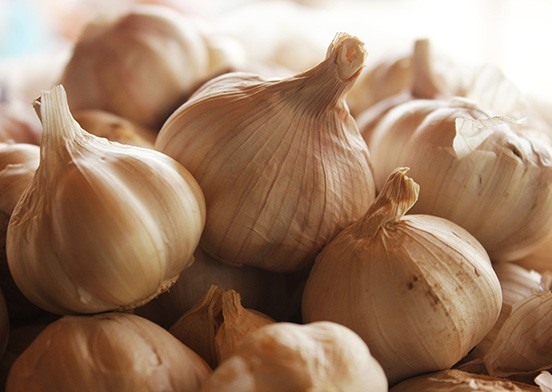Japanese Garlic, scientifically known as Allium sativum, is a unique and sought-after variety of garlic that originated in Japan. Renowned for its distinct taste and aromatic properties, Japanese Garlic has captured the attention of food enthusiasts and health-conscious individuals alike. In this article, we delve into the world of Japanese Garlic, exploring its characteristics, culinary uses, and potential health benefits that make it a prized ingredient.
Distinct Characteristics:
Japanese Garlic stands out with its visually appealing appearance and flavor profile. It typically features large cloves, wrapped in a beautiful white or purple-tinged skin. The taste of Japanese Garlic is often described as robust, slightly sweet, and less pungent compared to other garlic varieties. This mellow flavor adds depth and complexity to various culinary dishes.
Culinary Delights:
Japanese Garlic is a versatile ingredient that enhances the taste of a wide range of dishes. Its mild and subtly sweet flavor makes it a favorite among chefs and home cooks. Whether used raw, roasted, sautéed, or incorporated into sauces, soups, stir-fries, or marinades, Japanese Garlic adds a delightful aroma and savory essence to culinary creations. Its versatility makes it a staple in Japanese cuisine, elevating dishes to new heights of deliciousness.
Nutritional Highlights:
Japanese Garlic not only delights the taste buds but also offers potential health benefits. It is a rich source of essential nutrients, including vitamins C and B6, minerals like manganese and selenium, and organosulfur compounds, such as allicin, which contribute to its distinct flavor and potential health-supporting properties.
Immune Support: The high content of vitamin C in Japanese Garlic helps support a healthy immune system, promoting resilience against infections and bolstering overall well-being.
Heart Health: Research suggests that the organosulfur compounds present in Japanese Garlic may contribute to cardiovascular health. They may help lower blood pressure, reduce cholesterol levels, and support healthy blood circulation.
Antioxidant Power: Japanese Garlic contains potent antioxidants that help neutralize free radicals, reducing oxidative stress and supporting cellular health. These antioxidants may have anti-aging effects and potential benefits for overall wellness.
Anti-inflammatory Properties: The organosulfur compounds in Japanese Garlic have been studied for their anti-inflammatory effects. They may help reduce inflammation in the body, which is associated with various chronic conditions.
Digestive Health: Japanese Garlic is believed to have prebiotic properties, nourishing beneficial gut bacteria and supporting digestive health. It may help promote a healthy gut microbiome and improve overall digestion.
Culinary Delight with Health Benefits: Incorporating Japanese Garlic into your dishes not only enhances flavor but also adds potential nutritional advantages. It allows you to enjoy delicious meals while potentially supporting your health and well-being.
Conclusion:
Japanese Garlic, with its captivating flavor, appealing appearance, and potential health benefits, has secured its place in culinary traditions and wellness practices. Whether used in traditional Japanese recipes or incorporated into global cuisine, this garlic variety adds a touch of magic to dishes. Embrace the flavorful delights and potential health-supporting properties of Japanese Garlic as you explore its culinary versatility and consider incorporating it into your everyday meals.


Comments
Post a Comment